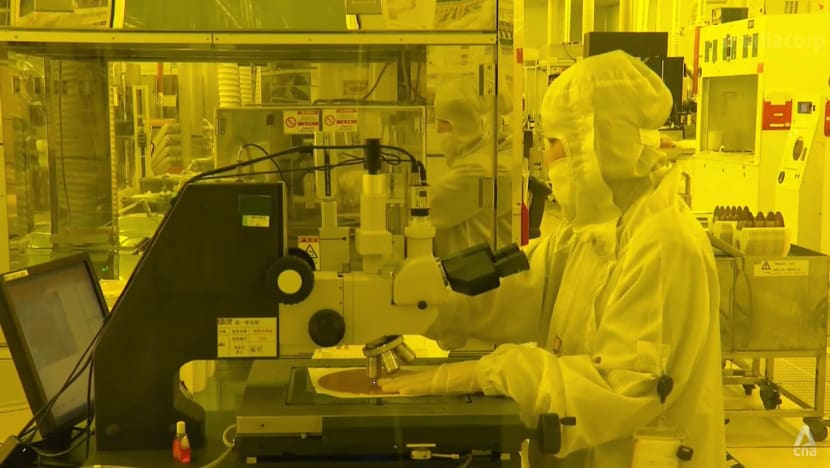China’s businesses not expecting Sino-US ties to improve, regardless of US midterm election results
The “China threat” rhetoric has morphed into a campaign issue, with the Democrats and Republicans competing to show who can be tougher on the Asian superpower.

China is heavily reliant on foreign companies for technological advancements, but a US ban on chip exports aims to cut the country off from advanced semiconductors.
BEIJING: Businesses in China are not hopeful that the country’s ties with the United States will improve, regardless of the outcome of the US midterm elections this month.
The “China threat” rhetoric has morphed into a campaign issue, with both Democrats and Republicans competing to be hawkish on the Asian superpower.
Even if control of the US Congress flips in the elections, observers believe the strategic distrust between the global superpowers goes so deep that the change would hardly make a difference. Congress is made up of two parts – the House of Representatives and the Senate.
“I think no matter (whether) the Democrats can keep the majority, or the GOP can take back the House or the Senate, their China policy is similar. The only thing is they are fighting each other to show who is stronger towards China,” said China Association for International Trade executive council member He Weiwen.
“So, the general political ecology around the midterm elections is unfavourable for China-US relations.”
With China-US tensions at their highest since diplomatic relations began in 1979, analysts are pessimistic about the prospects for bilateral ties – whether in the geopolitical or security arena, or in the area of trade.
US-CHINA TENSIONS A TOP BUSINESS CHALLENGE
A survey of US companies in China, conducted by the American Chamber of Commerce in March this year, found that 56 per cent of firms cited rising US-China tensions as their top business challenge, followed by inconsistent regulation and rising labour costs.
The impact is being felt on the ground.
Related:
One trading firm has seen its profit margins hit hard by the 25 per cent tariffs imposed on Chinese exports to the US. The tariffs are a legacy from the Trump administration, which President Joe Biden has kept in place since he took office.
“25 per cent is really a big hit, because that causes us to be less competitive,” said Mr David Lye, managing director of Qingdao Haoxin, which exports auto parts to the US.
“So prices will definitely go up. And that will affect us, because some of my customers will move elsewhere to buy, outside China.”
For Mr Lye, diversifying his supply chain and finding ways to bypass the tariffs are crucial to his company’s survival.
Now, he fears that the escalation of the Taiwan issue – the most fundamental difference rocking Sino-US ties – could worsen the business climate for cross-border traders.
UNCERTAIN BUSINESS CLIMATE
“Definitely, it will affect because it is interlinked,” said Mr Lye. “(The US) wants to restrict certain products. They will probably restrict some of our products going to the US. These are policies that will just suddenly pop up and we don’t know what will happen next."
He added: “I think I did the right thing. I moved some of the products to Vietnam, to India. So these are the places I’m looking at right now.”
Meanwhile, Chinese businesses in the chip sector are struggling.
China is heavily reliant on foreign companies for technological advancements, but a US ban on chip exports this month aims to cut the country off from advanced semiconductors.
China is at least three decades away from catching up with leading players in the sector, according to estimates by analysts, and US efforts to cut off its access to imports threatens to become a choke point.
“Since President Biden came into office, the focus of the United States has shifted to high tech, such as the Chip 4 Alliance and Chips and Science Act. It also wants to build up the supply chain excluding China, to guard against China,” said Mr He, a former Chinese trade official.
“That will contain China and will also affect China's growth.”
















